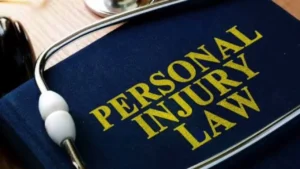Understanding the Legal Process of a Car Accident Lawsuit After a Death

Have you or someone you know been affected by a car accident that resulted in a tragic loss? It’s a tough situation, and understanding the legal process can feel overwhelming. Knowing what to expect can help you navigate this difficult time.
From filing a car accident lawsuit to seeking justice, being informed makes a difference. Ready to learn how the legal process works after a car accident death? Let’s break it down together!
Understanding Car Accident Lawsuits
Car accident lawsuits arise from negligence, where one party’s careless actions result in another party’s harm or demise. In a legal context, it is critical to establish liability, which determines who is responsible for the accident.
Various factors are considered, such as police reports, eyewitness testimony, and expert opinions. Every state has its own laws and regulations regarding car accidents.
Types of Damages in a Car Accident Lawsuit
In a car accident lawsuit, the grieving family can seek different types of damages. Generally, there are two primary categories of damages:
Economic Damages
These cover tangible losses, including:
- medical bills
- funeral costs
- loss of income
- property damage
Non-Economic Damages
These represent intangible losses such as emotional suffering, loss of companionship, and loss of enjoyment of life.
The compensation a family can receive depends on several factors like the severity of the accident, the insurance coverage of the defendant, and state laws. It’s essential to document all evidence and expenses thoroughly to build a credible case.
The Legal Process for Filing a Car Accident Lawsuit
Filing a lawsuit involves several key steps, each requiring careful attention to detail:
Consultation with a Lawyer
The first step in filing a car accident lawsuit is to consult with an experienced attorney. This discussion will help determine the validity of the claim, manage expectations, and outline an appropriate course of action.
Investigation of the Accident
Once you decide to proceed, the attorney will conduct a thorough investigation. This may include gathering police reports, medical records, witness testimonies, and obtaining any surveillance footage that may be pertinent to the case.
Filing the Complaint
After establishing the basis for the lawsuit, the attorney will file a complaint in the appropriate court. This document outlines the facts of the case and the specific legal reasons for holding the defendant accountable. It also specifies the damages sought.
Discovery Phase
The discovery phase allows both parties to gather and exchange information. Each side may conduct depositions, request documents, and file interrogatories. This phase is crucial for evaluating the strengths and weaknesses of each party’s case.
Mediation and Negotiation
Many cases may settle during mediation or negotiation. Both parties can discuss potential settlements before the trial. This process can save time, legal fees, and emotional stress.
Trial
If an agreement isn’t reached, the case goes to trial. Here, both parties present their arguments and evidence before a judge or jury. The court will ultimately determine liability and the appropriate compensation.
Timeline of Legal Proceedings
The timeline for a car accident lawsuit can vary greatly depending on factors such as state laws, the complexity of the case, and the willingness of the parties to negotiate.
Typically, a lawsuit might take anywhere from a few months to several years to resolve. Key stages in the process include consultation and investigation, which can take 1 to 3 months, followed by filing the complaint, usually within 1 to 2 months.
The discovery phase, where evidence is gathered, may take 3 to 12 months, and mediation or trial can last anywhere from 6 months to several years. Understanding this timeline helps families prepare emotionally and financially for the road ahead.
Calculating the Value of a Car Accident Lawsuit
Determining the value of a car accident lawsuit can be complex, as multiple factors come into play. Common methods of assessing value include:
Medical Expenses
All medical bills associated with the accident must be calculated. This includes hospital stays, therapy costs, and potential future medical care.
Lost Wages
If the deceased was a primary breadwinner, their earning capacity must be analyzed to provide a fair compensation estimate.
Pain and Suffering
This involves quantifying the emotional and psychological toll on the surviving family members. In many jurisdictions, this type of damage is subjective and can vary significantly.
Ultimately, working closely with a lawyer can help families determine a realistic estimate based on all relevant considerations.
Role of Insurance Companies
Insurance companies play a key role in the lawsuit car accident process and are often the first point of contact for compensation. However, their main goal is to minimize payouts, including those related to a car accident death claim payout.
Knowing the details of your insurance policy can help you negotiate a better settlement. Typically, an insurance company will investigate the accident by collecting reports and witness statements.
Then, they will evaluate damages based on medical records and property damage and make an initial offer, which is usually lower than what the case is worth.
Common Pitfalls in Car Accident Lawsuits
Navigating a lawsuit for car accident requires careful attention. There are common pitfalls that can weaken a case. Delaying action and failing to file within the statute of limitations can result in losing the right to make a claim.
Inadequate documentation of expenses and damages can also harm the case’s strength. Additionally, underestimating emotional losses, like non-economic damages, can lead to a lower settlement. By staying focused and avoiding these mistakes, families can better achieve justice and compensation after a tragic event.
Impact of a Wrongful Death Claim
A wrongful death claim stems from a fatal car accident lawsuit and allows surviving family members to seek compensation for their loss. Typically, the surviving spouse, children, or parents of the deceased can file this claim. For effective recovery, it’s crucial to gather strong evidence supporting the claim, which includes:
- Medical records and testimony
- Proof of financial dependency
- Documentation of emotional toll
These elements combined can strengthen the validity of a wrongful death claim.
Navigating the Journey of Justice Through a Car Accident Lawsuit
Understanding the legal process of a car accident lawsuit after a death can be a complex endeavor, yet it is crucial for obtaining justice and compensation for families left behind.
Each step in the journey from consultation to trial plays a pivotal role in achieving a favorable resolution. Families must remain informed and supported during this trying time.
By doing so, they can advocate effectively for the rights of their loved ones while pursuing the full compensation deserved.
Looking for more tips and ideas? We’ve got you covered. Check out some of our other posts now.







